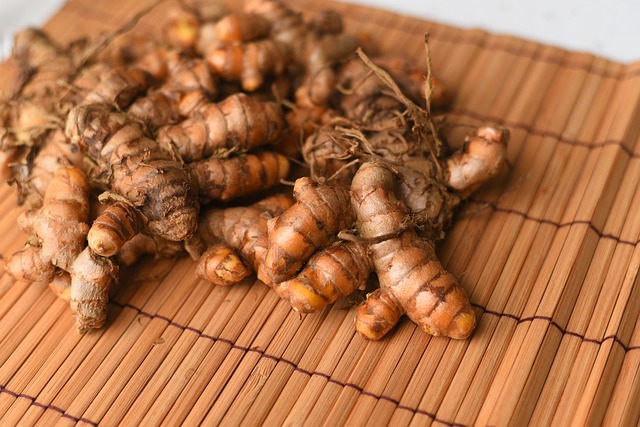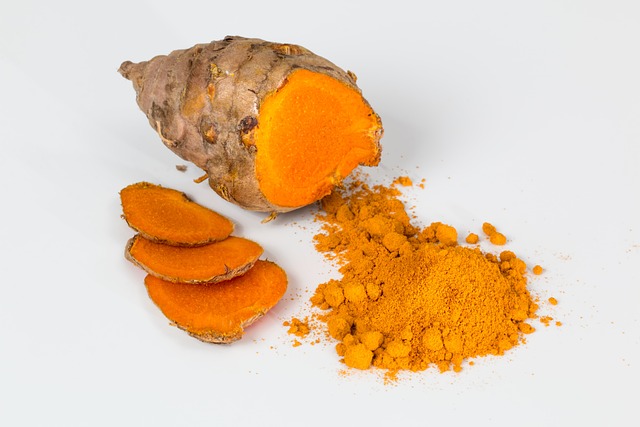Golden Goodness: How Turmeric Can Transform Your Health and Well-being
Introduction:
Turmeric, with its brilliant color and distinct flavor, has been cherished for centuries for its culinary and medicinal uses. Beyond its role as a kitchen staple, turmeric holds remarkable potential to enhance our health and well-being. In this article, we'll explore the golden spice's profound benefits and how it can positively influence our vitality and vitality.
1. Exploring Turmeric's Roots:
- Turmeric, derived from the Curcuma longa plant, is native to South Asia, where it has been used for culinary and medicinal purposes for generations.
- The root of the turmeric plant is dried and ground into a fine powder, commonly used in cooking and traditional medicine.
2. Understanding Curcumin:
- Curcumin is the main active compound in turmeric responsible for its health-promoting effects.
- This powerful compound has potent antioxidant and anti-inflammatory properties, which are key to its various health benefits.
3. Anti-inflammatory Magic:
- Chronic inflammation is a root cause of many health issues, including heart disease and arthritis.
- Curcumin's ability to reduce inflammation can help alleviate symptoms and potentially prevent these conditions.
4. Harnessing Antioxidant Power:
- Oxidative stress, caused by free radicals, can damage cells and contribute to aging and disease.
- Curcumin acts as an antioxidant, neutralizing free radicals and protecting our bodies from harm.

5. Supporting Joint Health:
- Joint pain and arthritis can significantly impact daily life. Curcumin's anti-inflammatory properties may provide relief from pain and stiffness associated with these conditions.
- Including turmeric in your diet or taking curcumin supplements could help improve joint function and mobility.
6. Nurturing Heart Health:
- Heart disease is a leading cause of death globally. Curcumin has been shown to improve heart health by reducing inflammation, lowering cholesterol levels, and improving blood vessel function.
- Incorporating turmeric into your diet may help support a healthy heart and reduce the risk of cardiovascular disease.
7. Boosting Brain Function:
- Age-related cognitive decline is a concern for many. Curcumin's antioxidant and anti-inflammatory properties may help protect brain cells and support cognitive function.
- While more research is needed, preliminary studies suggest that turmeric could play a role in maintaining brain health as we age.
8. Easing Digestive Discomfort:
- Turmeric has a long history of use in traditional medicine for digestive issues.
- Curcumin's anti-inflammatory properties may help alleviate symptoms of digestive disorders like irritable bowel syndrome (IBS) and indigestion.
9. Adding Turmeric to Your Routine:
- Incorporating turmeric into your diet is simple. Sprinkle it on vegetables, add it to soups and stews, or enjoy it in a flavorful curry.
- If you're targeting specific health concerns, consider taking curcumin supplements for a more concentrated dose.
10. Precautions and Considerations:
- While turmeric is generally safe, consuming large amounts may cause stomach upset in some individuals.
- If you're pregnant, nursing, or have underlying health conditions, consult with a healthcare professional before adding turmeric supplements to your regimen.
Conclusion:
Turmeric's vibrant color and distinct flavor make it a beloved ingredient in cuisines worldwide. However, its true power lies in its ability to enhance our health and well-being. From reducing inflammation and supporting joint health to boosting heart and brain function, turmeric offers a wealth of benefits that can transform our lives. By incorporating this golden spice into our daily routine, we can unlock its full potential and embark on a journey toward better health and vitality.

FAQs: Turmeric - Your Key to Health and Wellness
1. What is turmeric exactly?
Turmeric is a spice derived from the Curcuma longa plant, mainly found in South Asia. It's renowned for its golden color and is widely used in cooking and traditional medicine.
2. What is curcumin, and how does it contribute to turmeric's health benefits?
Curcumin is the active ingredient in turmeric responsible for its health benefits. It possesses strong antioxidant and anti-inflammatory properties, which are essential for its therapeutic effects.
3. How does turmeric help reduce inflammation in the body?
Turmeric contains curcumin, which acts as a natural anti-inflammatory agent. This helps alleviate inflammation linked to various health conditions such as arthritis and heart disease.
4. Can turmeric supplements help with joint pain and arthritis?
Yes, studies suggest that turmeric supplements containing curcumin can reduce joint pain and stiffness associated with arthritis. Its anti-inflammatory properties make it effective for managing these conditions.
5. What role does turmeric play in heart health?
Turmeric has been found to improve heart health by reducing inflammation, lowering cholesterol levels, and enhancing blood vessel function. Including turmeric in your diet may support overall cardiovascular health.

6. How does turmeric support brain function?
Curcumin in turmeric possesses antioxidant properties that protect brain cells from damage. It may also support cognitive function and reduce the risk of age-related cognitive decline.
7. Can turmeric help with digestive issues?
Yes, turmeric has traditionally been used to alleviate digestive discomfort. Its anti-inflammatory properties may ease symptoms of digestive disorders like irritable bowel syndrome (IBS) and indigestion.
8. How can I incorporate turmeric into my daily routine?
Turmeric can be added to various dishes such as curries, soups, and stir-fries to enhance flavor and color. Alternatively, turmeric supplements containing curcumin are available for targeted health benefits.
9. Are there any precautions or side effects associated with turmeric consumption?
While turmeric is generally safe, consuming large amounts may cause stomach upset or interact with certain medications. It's advisable to consult with a healthcare professional, especially if pregnant, nursing, or with underlying health conditions.
10. Is turmeric suitable for everyone?
Turmeric is safe for most individuals when consumed in moderation as part of a balanced diet. However, those with specific health concerns or taking certain medications should seek guidance from a healthcare provider.
Powered by Froala Editor





Leave a Reply